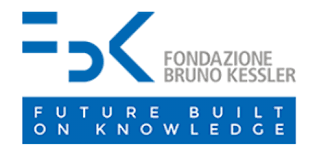This is a PyTorch implementation of the paper: Domain-Aware Dialogue State Tracker for Multi-Domain Dialogue Systems. by Vevake Balaraman and Bernardo Magnini.
In task-oriented dialogue systems the dialogue state tracker (DST) component is responsible for predicting the state of the dialogue based on the dialogue history. Current DST approaches rely on a predefined domain ontology, a fact that limits their effective usage for large scale conversational agents, where the DST constantly needs to be interfaced with ever-increasing services and APIs. Focused towards overcoming this drawback, we propose a domain-aware dialogue state tracker, that is completely data-driven and it is modeled to predict for dynamic service schemas including zero-shot domains. Unlike approaches that propose separate models for prediction of intents, requested slots, slot status, categorical slots and non-categorical slots, we propose a single model in an end-to-end architecture. The proposed model also utilizes domain and slot information to extract both domain and slot specific representations from a given dialogue, and then uses such representations to predict the values of the corresponding slot in a given domain. Integrating this mechanism with a pretrained language models, our approach can effectively learn semantic relations and effectively perform zero-shot tracking for domains not present in training.
The bibtex is below.
@article{balaraman2020domainaware,
title={Domain-Aware Dialogue State Tracker for Multi-Domain Dialogue Systems},
author={Vevake Balaraman and Bernardo Magnini},
year={2020},
eprint={2001.07526},
archivePrefix={arXiv},
primaryClass={cs.CL}
}
The Schema Guided Dataset (SGD) is used for the experiments.
-
Configure the directories and BERT model locations in
config.py -
Create a schema dictionary for the dataset.
python create_schema_dict.py
-
create schema encodings
python encode_schema.py
-
Train the model
python train.py
-
Test the final model
python test.py
Please feel free to contact me at [email protected] for any queries.




